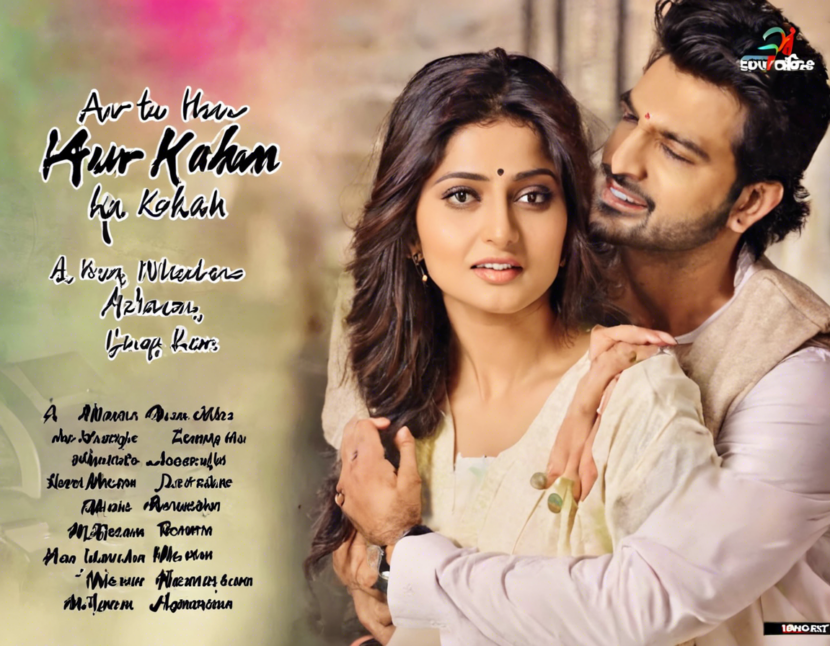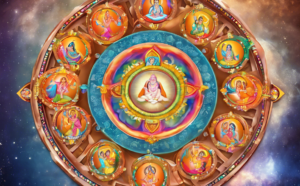Introduction
A popular phrase in South Asian music, “Aur Tu Hai Kahan” has captured the hearts of listeners with its depth and emotion. Translated as “And where are you,” this phrase holds different meanings for different people. In this article, we will delve into the significance of Aur Tu Hai Kahan in lyrics, exploring its context, emotions, and interpretations.
The Context of Aur Tu Hai Kahan
The phrase Aur Tu Hai Kahan is often used in lyrical compositions to express longing, searching, and a sense of incompleteness. It conveys a yearning for someone or something that is not physically present. This can be interpreted in various ways, such as searching for a lost love, seeking a higher purpose, or simply feeling a sense of emptiness.
Emotions Evoked by Aur Tu Hai Kahan
The emotional depth of Aur Tu Hai Kahan is what resonates with listeners. It evokes feelings of nostalgia, loneliness, and hope. The repetition of this phrase in a song can create a haunting and mesmerizing effect, drawing the audience into the singer’s emotional journey.
Interpretations of Aur Tu Hai Kahan
While the literal translation of Aur Tu Hai Kahan is “And where are you,” its poetic interpretation goes beyond the physical presence of a person. It can symbolize the search for one’s true self, the quest for meaning in life, or the pursuit of a higher spiritual connection. The ambiguity of the phrase leaves room for personal reflection and introspection.
Aur Tu Hai Kahan in Different Genres
Aur Tu Hai Kahan has been used across various genres of music, from soulful ballads to upbeat pop songs. Its versatility lies in its ability to convey profound emotions in a simple yet impactful manner. Whether accompanied by melancholic melodies or upbeat rhythms, this phrase adds depth and complexity to the lyrical narrative.
Impact of Aur Tu Hai Kahan on Listeners
Listeners often find solace and catharsis in the words Aur Tu Hai Kahan. Its universal theme of longing and searching appeals to a wide audience, making it a timeless and relatable phrase. As it lingers in the minds of listeners, it sparks contemplation and introspection about their own journeys and experiences.
Frequently Asked Questions (FAQs)
1. What is the origin of the phrase Aur Tu Hai Kahan in music?
Answer: The phrase Aur Tu Hai Kahan has its roots in Urdu poetry and has been integrated into various musical compositions over the years.
2. How does Aur Tu Hai Kahan differ from similar phrases in music?
Answer: While similar phrases may convey longing or searching, Aur Tu Hai Kahan has a unique poetic resonance that sets it apart.
3. Can Aur Tu Hai Kahan have different interpretations based on the context of the song?
Answer: Yes, the meaning of Aur Tu Hai Kahan can vary depending on the lyrical context and the emotions conveyed in the music.
4. Why do listeners connect with the phrase Aur Tu Hai Kahan on an emotional level?
Answer: The emotional depth and universal themes explored in Aur Tu Hai Kahan resonate with listeners on a personal and introspective level.
5. Is there a specific cultural significance attached to Aur Tu Hai Kahan in South Asian music?
Answer: While Aur Tu Hai Kahan has gained popularity in South Asian music, its themes of longing and searching are universally understood across cultures.
In conclusion, the phrase Aur Tu Hai Kahan holds a special place in the world of music, captivating audiences with its emotional depth and poetic resonance. Whether as a symbol of love, a metaphor for life’s journey, or a reflection of inner longing, this phrase continues to inspire contemplation and introspection among listeners.





